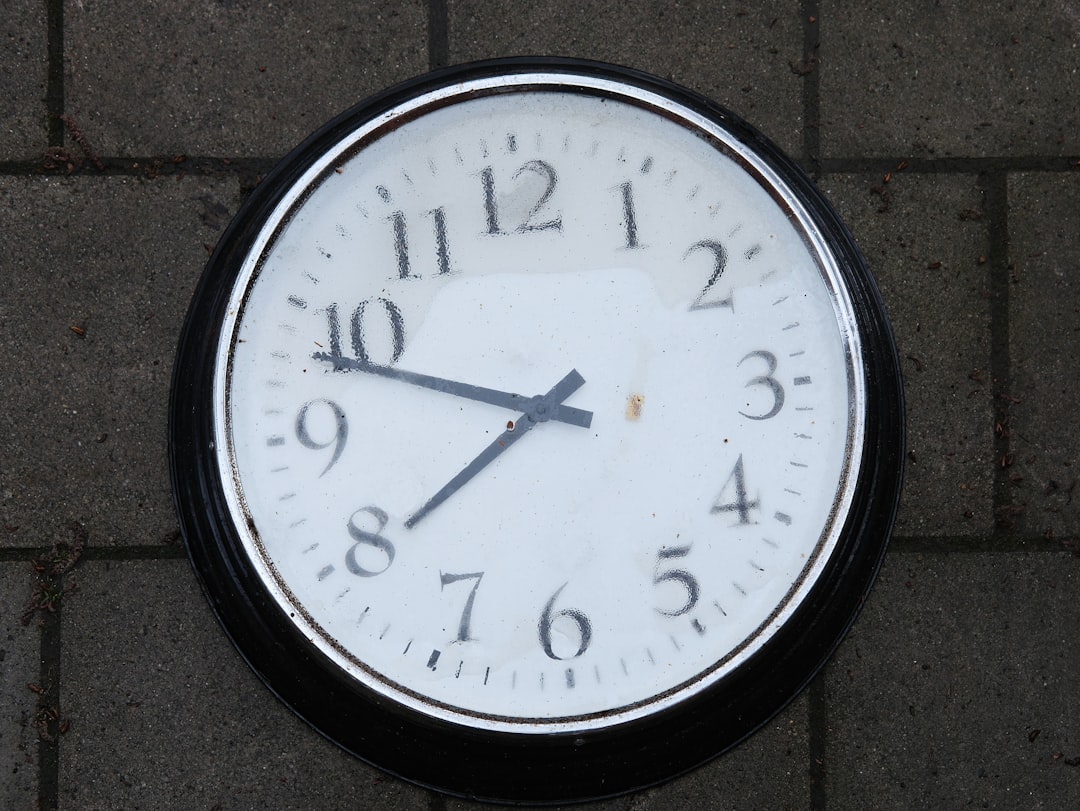
I used to feel like time was my master, not my tool. My days often blurred into a cycle of gaming, overeating, and just generally drifting, leaving me with a nagging sense of wasted potential. It’s a frustrating place to be, isn't it? That feeling of having so much to do, but never quite knowing how to make the hours count.
For a long time, I struggled to get a handle on my time. I’d start the day with good intentions, only to find myself sidetracked by distractions, procrastination, or just plain laziness. But through a lot of trial and error, I found ways to reclaim my days, build a routine that actually works, and yes, even lose over 110 pounds along the way. It wasn't about finding more hours in the day. It was about learning how to distribute the time I had more intentionally.
If you’re ready to stop feeling overwhelmed and start seeing real progress in your life, you're in the right place. These aren't magic tricks. They are practical, real-world methods that have helped me and countless others make the most of every moment. Let’s dive in.
Laying Your Foundation
Before you can build, you need a strong base. These methods help you define what truly matters so you can align your time with your values.
- Know Your "Why." Why do you want to manage your time better? Is it to spend more time with family, build a business, get healthy, or grow closer to God? For me, strengthening my Christian Orthodox faith and finding purpose through a closer relationship with God became my ultimate "why." When I know my purpose, it’s much easier to say "no" to things that don’t serve it. Pinpoint your biggest motivator.
- Prioritize What Matters Most. Not everything is equally important. Write down your top 3-5 life priorities. Then, when planning your week or day, ask yourself: "Does this activity move me closer to one of these priorities?" If not, reconsider it.
- The Daily "Big Three." At the start of each day, pick the three most important tasks you must complete. These are your non-negotiables. Focus on getting these done before anything else. This gives you a clear win early in your day.
- Time Blocking. Look at your schedule and assign specific blocks of time to specific tasks or types of work. Treat these blocks like appointments you can't miss. For example, "9 AM-11 AM: Deep Work on Project A." This helps prevent context switching and keeps you focused.
- Batch Similar Tasks. Group similar activities together. Reply to all emails at once. Make all your phone calls back-to-back. Run all errands in one trip. This saves mental energy and cuts down on transition time.
Powering Through Procrastination
Procrastination can be a major time thief. These strategies help you get started and keep moving forward, even when you don't feel like it.
- The Two-Minute Rule. If a task takes less than two minutes to complete, do it immediately. Don't put it off. This clears small items quickly, preventing them from piling up and becoming overwhelming. Answering a quick email, putting dishes away, or sending a short text – just do it.
- Break Tasks Down. Big goals feel daunting. Losing over 110 pounds seemed impossible until I stopped thinking about the total and focused on small, daily choices. Break large projects into the smallest possible steps. Instead of "Write a report," think "Outline report," then "Research section 1," "Draft intro," and so on. This makes starting much easier.
- Deal with Distractions Head-On. Distractions steal our time and focus. I used to struggle with gaming addiction, and I know how easily hours can vanish. Identify your biggest time-wasting distractions and create barriers. Turn off notifications. Close unnecessary tabs. Put your phone in another room during focused work. Make it harder to get sidetracked.
- Create a "Done" List. We often focus on what’s left to do. Instead, keep a list of what you've accomplished. I started celebrating small wins during my weight loss journey, and it built incredible momentum. Seeing your progress provides motivation and a sense of achievement.
- Use Short Bursts of Deep Work. Forget working 8 hours straight. My most productive routine involves short bursts of deep work—usually 2-4 hours—followed by a break. Set a timer for 25-45 minutes and work with intense focus. When the timer rings, take a short break (5-10 minutes). Repeat. This method, often called the Pomodoro Technique, helps maintain high energy and concentration.
Sustaining Your Energy & Focus
It’s not just about doing more; it’s about doing it sustainably. These methods help you protect your energy and ensure you're working effectively, not just endlessly.
- Schedule Breaks. Breaks are not a luxury; they are essential for sustained focus and preventing burnout. Step away from your work. Walk around. Get some fresh air. Give your brain a chance to reset.
- Protect Your Peak Hours. We all have times of day when we are naturally most alert and productive. Identify your peak hours and schedule your most demanding tasks for then. Reserve less mentally taxing work for your lower energy periods.
- Review and Adjust. At the end of each day or week, take a few minutes to review how you spent your time. What worked well? What didn't? Where did you get sidetracked? Practice daily gratitude for your blessings and for the progress you made. This reflection helps you learn and refine your approach, making tomorrow even better.
- Guard Your Sleep. It sounds basic, but consistent, quality sleep is foundational to good time management. When you're well-rested, you have more energy, better focus, and improved decision-making abilities. Make sleep a non-negotiable priority.
- Find Your Purposeful Rest. True rest isn’t just about stopping work; it's about renewing your spirit. This isn't about new-age practices. For me, it means setting aside time for prayer, reading scripture, attending Divine Liturgy, or simply spending quiet time reflecting on God’s grace. It could also mean serving others, connecting with loved ones, or engaging in a hobby that truly rejuvenates you. This kind of rest fills you up, making you more effective when you return to your tasks.
Taking control of your time isn't a destination; it's a continuous journey of learning and adjusting. There will be days when you nail it, and days when you feel like you've slipped back into old habits. That’s okay. The key is to keep showing up, keep trying, and keep making small, consistent steps forward.
Which one of these methods will you try first to start reclaiming your time today?





